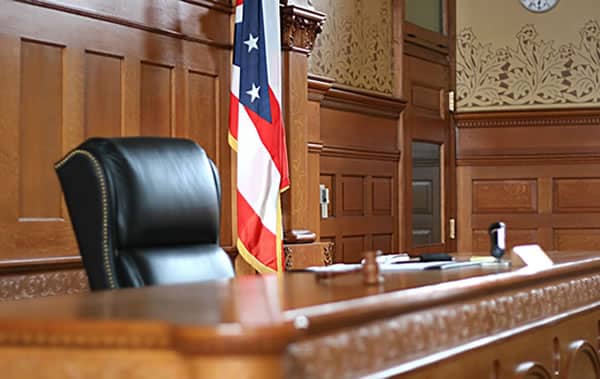
Immigration Appeals Lawyer In Orlando
- In the context of the denial of an I-130 or I-360 self-petition for widow(er) of a US citizen
If your immigrant relative petition (Form I-130) or self-petition for widow(er) of a United States citizen(I-360) was denied by a Service Center within USCIS, you have 30 days to file an appeal of such decision with the BIA (Board of Immigration Appeals) located in Falls Church, VA. You may be entitled to a 33 days deadline if the decision was mailed to you.
Form EOIR-29 is used to file your notice of appeal, on which you must explain the reasons why USCIS was wrong in denying the petition and whether you are requesting oral arguments. It is important to state solid reasons for your appeal and to file a brief within the timeframe specified by the Department of Homeland Security.
- In the context of the denial of an I-140, I-360, I-601 waiver or a nonimmigrant alien worker petition
If your immigrant work petition (Form I-140), I-360 Petition for Amerasian or abused spouse, I-601 waiver or I-129 nonimmigrant alien worker petition (such as for H-1B classification, L-1A, E-2 or other type of temporary work petition) was denied by a Service Center within USCIS, you have 30 days to file an appeal of such decision with the Administrative Appeals Office (AAO). You may be entitled to a 33 days deadline if the decision was mailed to you.
Form I-290B is used to file your notice of appeal, on which you must explain the reasons why USCIS was wrong in denying the petition and whether you are requesting oral arguments. It is important to state solid reasons for your appeal and to file a brief within the timeframe specified by the Department of Homeland Security.
There is also the option to file a motion to reopen with the Service Center that denied the application, supported by documentary evidence demonstrating eligibility for the benefit at the time you filed the application of petition. Alternatively, a motion to reconsider can be filed within 30 days of the date of the denial provided you can prove that USCIS made a decision based on an incorrect application of law or policy and that the decision was incorrect based on the evidence in the case record at the time of the decision.
If USCIS reverses its decision, then your petition can be approved. If they stand by their initial decision, then they will treat your motion to reopen as an appeal and send it to the AAO for further processing.
- In the context of removal proceedings
If you are in removal proceedings and filed an application for a form of relief from removal but your application was denied, and the Immigration Judge issued an order of removal, your only remaining option is to file an appeal of the Immigration Judge’s decision to a higher court. The next higher court that has jurisdiction over the Immigration Judges is called the Board of Immigration Appeals (BIA) which is located in Falls Church, Virginia. No matter which Immigration Court in the United States makes a decision in your case, all appeals go to the BIA, which many people also refer to as “the Board.”
If you are at this stage in your immigration case, filing an appeal with the BIA is important because it allows you to remain in the United States with an automatic stay of removal until the BIA makes a decision on your appeal case. However, if your appeal is not timely filed, makes errors in its filing, or fails to lay out a cogent argument, the BIA can summarily dismiss your appeal. This is why it is incredibly important to obtain expert legal advice from a firm that regularly undertakes BIA appeals in order to preserve your rights to appeal your case.
It is also possible that the government – the Department of Homeland Security – will appeal an Immigration Judge’s decision in your case, which means that the only way to preserve the Judge’s decision is for you to have a strong appeal argument as well.
When the BIA decides any appeal in your case – whether you file an appeal or the government files an appeal – they have a few different options:
- The Board can reverse the Immigration Judge’s decision and grant your case;
- The Board can remand your case back to the Immigration Judge with instructions about considering new evidence or to issue a new decision.
- Or the Board can uphold the Immigration Judge’s decision which means your order of removal is still in effect and you can be deported.
If the Board upholds the removal order that the Immigration Judge made, you can request that a higher court called the United States Court of Appeals review that BIA’s decision, this is called a petition of review. Unlike the BIA, the Court of Appeals has the authority to decide that a law passed by Congress violates the Constitution.
Appeals can be time-sensitive and tricky to navigate from a legal perspective, so you will want attorneys that you can count on who can explain the strengths and weaknesses of your appeal case that may be different from your case in front of the Immigration Judge. Make an appointment to come and talk to our attorneys, Suzanne Vazquez and Maud Poudat about our appellate practice today. Suzanne and Maud are board certified as experts in Immigration and Nationality Law by the Florida Bar. Call us today at 407.674.6968 or fill out the online form located on this page and we will contact you shortly.